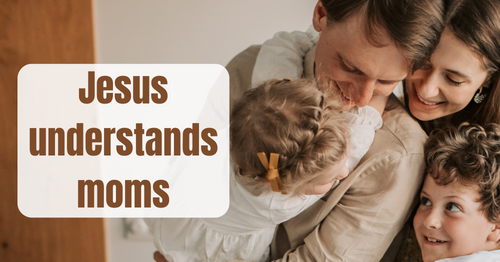-
The Hope in Our Scars, part 2
This week we continue a two-part series talking with Aimee Byrd about her new book, The Hope in Our Scars: Finding the Bride of Christ in the Underground of Disillusionment. Got some church hurt? Or friends with church wounds. Aimee’s work is for you…. SG: What do you want to see as the outcome of your work? Jesus gives us a powerful metaphor in his warning, “Woe to you, scribes and Pharisees, hypocrites! You shut the door of the kingdom of heaven in people’s faces. For you don’t go in, and you don’t allow those entering to go in” (Matt. 23:13). This sticks with me. I want to be a…
-
The Hope in Our Scars, Part 1
Today I’m introducing a two-part interview with author Aimee Byrd about her most recent book—The Hope in Our Scars. Got scars? Read on…. SG: Can you give us your elevator-pitch summary of the topic of The Hope in Our Scars? The church is full disillusioned disciples. We have missed something big in our quest to be right—the heart of the matter. In The Hope in Our Scars, I share my own disillusionment with the church, as well as the stories of others, discovering that hope is not sentimental. It bears scars. But the wonder of it all is that Christ is preparing his bride/church for Love. We need to face our…
-
Of Noah and Her Sisters
Noah—that’s the number-one boys’ name in the USA in the year of our Lord 2024, according to BabyCenter.com. I find this particularly interesting considering that “Noah” is also one of the names of the five daughters of Zelophehad found in the biblical book of Numbers. Does her name ring a bell? I hope so—it shows up multiple times. We first read about Noah and her sisters in the text that records two censuses of the people of Israel. God calls for these countings of the people forty years after the exodus from Egypt as they prepare to enter the Promised Land. Oddly enough, the story where we find the women…
-
My Summer Reading Recommendations for Leaders
Light of Assisi: The Story of Saint Clare. How much do you know about Clare of Assisi (b. 1194)? Most of us know about St. Francis. But Clare, his contemporary, outlived him by twenty years and is probably why we have such great access to his story and writings. Think Elizabeth Schuyler Hamilton making sure we all rightly remember Alexander Hamilton and you get the picture. Raised in an elite home, Clare was quite literate and trained to manage a wealthy household. But Francis helped her slip out with a companion, cut her hair, and launch herself—in quiet defiance—on a path of celibacy, poverty, and service. Radical! Her elite training…
-
Nicole C. Mullen on Multi-Faceted Faithfulness
Last month Nicole C. Mullen sang and signed “I Know that My Redeemer Lives” along with selections from her new album, “War Songs” (based on Psalm 91), at the EPA Christian media convention in Lexington. Afterward, she sat down to talk with me about longevity and the varied faces of faithfulness. Mullen’s grandparents had “sixty-plus-year marriages on both sides of the family,” she said. Her grandfather on her dad’s side “pastored and worked for the phone company for thirty-six years.” Her parents were married for “fifty-four years, five months, and fourteen days” before the death of her father. The latter “also worked for same phone company for thirty-eight years.” And…
-
My Grid, Your Grid, We’ve All Got a Grid
Ever seen drawings of the ancient goddess Artemis? If so, she was likely carrying a bow and arrow. More recent iterations of her as Diana/Wonder Woman still depict her that way—with shield, bow, and arrow. Ancient literature includes many references to Artemis as a master of archery. (And make no mistake—Artemis was as likely to shoot at females as males.) We see similar descriptions of her in the epigraphic (inscription) evidence. In the ruins of ancient Ephesus, her natal city near what today is Kuşadasi, Turkey, archaeologists discovered “The Oracle Inscription.” In it Artemis is described using a variety of archery terms: “Artemis of the golden quiver,” “shooter of arrows,”…
-
All the Genealogies of the Bible: A fascinating author interview
Today I’m happy to introduce you to the work of Dr. Nancy S. Dawson, author of All the Genealogies of the Bible (Zondervan Academic). The book is a new, wonderful reference work that released this past fall. Here’s an interview I did with her: SG: Dr. Dawson, I love all the genealogical charts and commentary you’ve given readers that cover the figures of both Old and New Testaments. It’s a thick, hardback book. It must have taken years! How did this project come about? ND: My background is in the sciences—an M.S. in botany/plant taxonomy and a PhD in cell biology. After several faculty appointments, our family moved to North Carolina. There, I had…
-
Tamar’s “Wrong” Makes It Right
Today I’m happy to host guest columnist Katherine Tucker. You can read her bio below. In honor of Women’s History Month, consider the hope of Easter through the story of a woman in the Bible. Her story is obscure, often misunderstood, and frequently passed over. Those familiar with it tend to cringe a little at her name. “Tamar.” It invokes ideas of prostitution, seduction, and revenge. What could this harlot have to do with our LORD, the incarnation, and the resurrection? As it turns out, literally everything. The truth is that we have Tamar “the prostitute” to thank for Jesus’s family tree. Tamar is one of three women named in…
-
How Then Shall We Live? (Contextualization, Part III)
“Will you burn incense for your dad?” My mom looked at me expectantly as she asked. Within a month, we fly back to Taiwan to take my dad’s ashes home. My grandparents have already purchased a family lot, where we will lay his remains. Because they practice Buddhism, they will expect us to burn incense in honor of their deceased son. According to traditional Chinese belief, the smoke from burning incense carries one’s prayers to the heavens. A person can burn incense both to honor a deceased family member and to ask them for blessings. For example, one relative would ask her deceased husband to bless their grandchildren’s studies. Because…
-
Contextualization, Part 2: Making Known the Unknown God
Part two in a series on contextualization from my former intern, Crystal. “You need more rice.” I watched my mentor scoop more of the starchy grain onto another student’s plate. We were dining at a Chinese restaurant, courtesy of the head of the research lab where I was interning. “Chinese people eat a lot of rice. It’s a staple in our culture. Like how Americans eat bread or potatoes.” Now, I can think of some American cuisines where the meat seems more indispensable. (Have you feasted at a Texas barbeque?) But my mentor’s analogy had served its purpose. My peer’s face lit up with understanding. Biblical Precedence for Contextualization My…




































